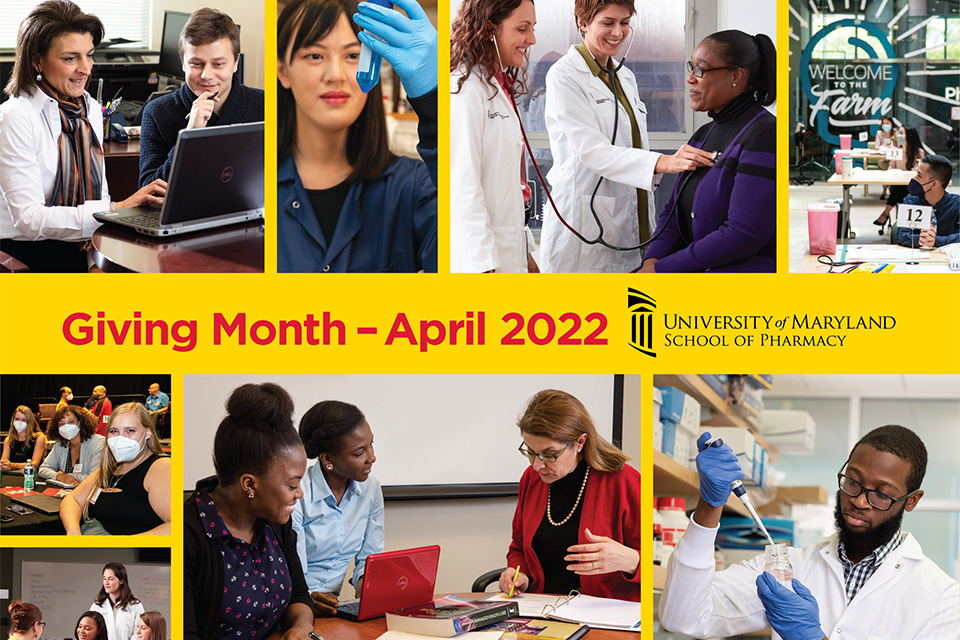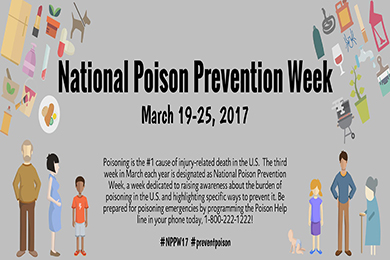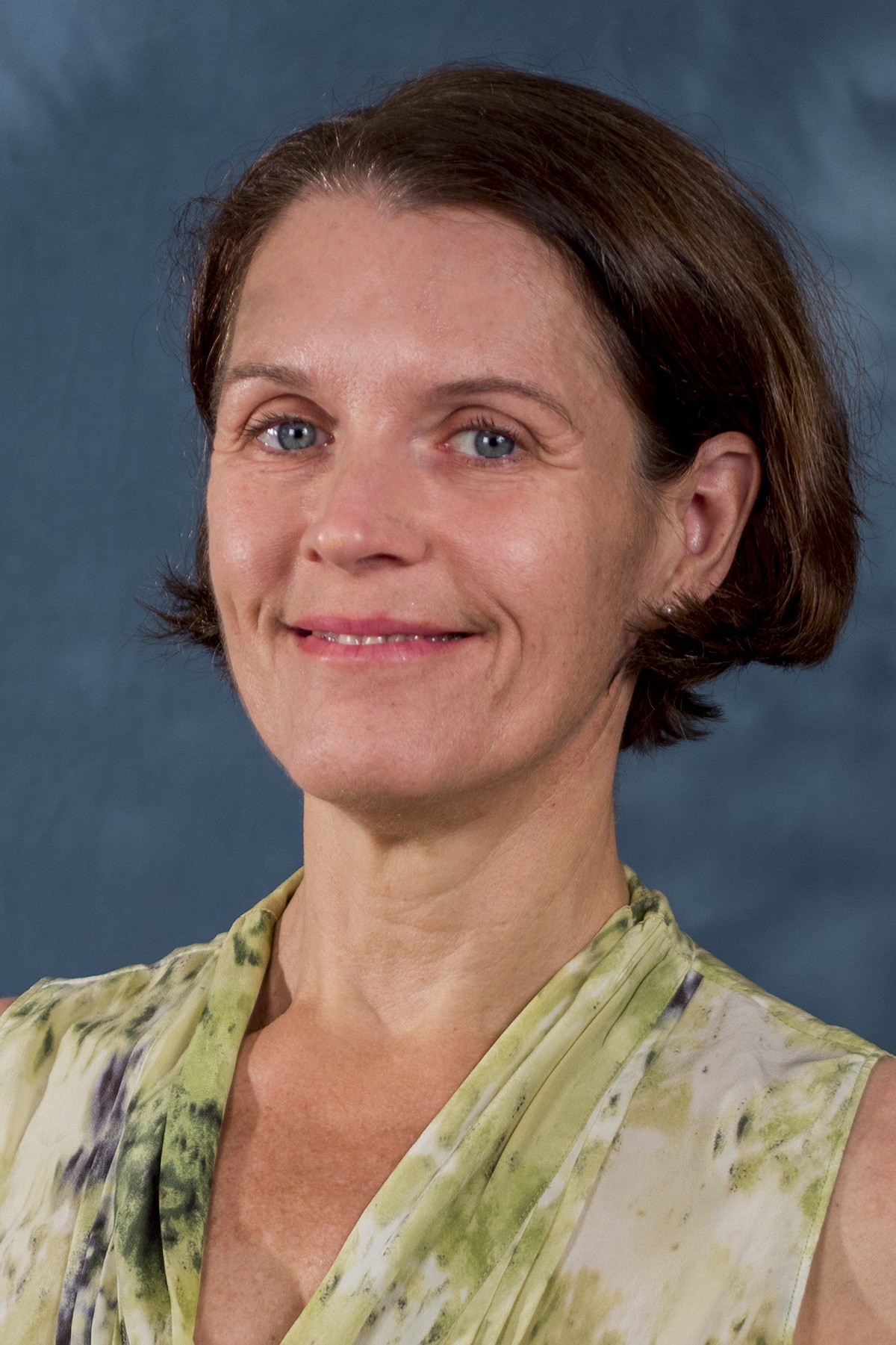Maryland Poison Center Honored as a Health Care Hero
Daily Record recognizes the Center’s community outreach work and its efforts to save lives and save dollars.

By Becky Ceraul
March 23, 2011
The University of Maryland School of Pharmacy’s Maryland Poison Center (MPC) was recognized March 23 as a finalist in the community outreach category of the Daily Record newspaper’s annual Health Care Heroes event. MPC was selected because of its vital service to the citizens of Maryland who are in need of immediate and accurate information about potential poisoning cases.
“The Maryland Poison Center has been a trusted resource for Marylanders since its formation at the University of Maryland School of Pharmacy in 1972,” says Natalie D. Eddington, PhD, FAAPS, dean of the School of Pharmacy. “We are proud that its efforts to keep adults and children safe from poisoning hazards have been recognized for the public service that it is. The highly trained and specialized men and women who staff the Poison Center serve as a lifeline for parents, patients, emergency responders, physicians, nurses, and more. This is a truly deserved honor for them.”
The mission of the MPC, part of the School’s Department of Pharmacy Practice and Science (PPS), is to decrease the cost and complexity of poisoning and overdose care while maintaining and/or improving patient outcomes. It fulfills that mission by not only providing immediate access to high quality poison information 24 hours a day, seven days a week, but by conducting research on the management of poisoning and overdose patients, as well as through public education to try to prevent poisonings through the well-known Mr. Yuck campaign, outreach and demonstrations to churches, schools, and community groups, and by training health professionals (pharmacists, nurses, physicians, and paramedics) in the management of poisoning and overdose care.
The MPC responded to more than 1.8 million calls between 1972 and 2009. More than half of all poisonings reported to the MPC involve children less than 6 years old. Highly trained poison specialists (pharmacists and nurses with additional toxicology training and certification) staff its emergency telephone lines 24 hours a day, seven days a week.
“These experts provide emergency treatment and triage information to callers on a wide variety of poisoning questions,” says Bruce Anderson, PharmD, DABAT, director of operations at the MPC and an associate professor in PPS. “The MPC staff is able to quickly and efficiently provide information on the necessary course of action for whatever the poisoning situation might be. More than 90 percent of cases involving small children are handled at home with treatment advice from MPC poison specialists. Not only does this service decrease the cost and complexity of health care for patients, but it provides immediate information and guidance to help reduce parents’ anxiety and uncertainty.”
Several studies have demonstrated the financial impact of poison centers like the one at the University of Maryland School of Pharmacy. The results reveal tremendous cost savings in terms of preventing unnecessary urgent care visits. Studies show that for every state funded dollar spent on poison center services, as much as $36 is saved by successfully managing patients at home instead of in emergency rooms. Not only do poison centers help decrease costs through avoidance of emergency room visits, they help to control costs for patients already in the hospital. Several studies have demonstrated cost savings for hospitalized poisoned patients when poison centers were consulted; one study showed a savings of $2,100 per patient due to reduced length of hospital stay.
In addition to its telephone triage system, the MPC also monitors and reports on potential public health problems. The MPC is part of a network of 57 poison centers across the country that documents all poisoning cases in an electronic data collection format. Those cases are submitted to a national data collection system every 5-10 minutes. This data is used for both local and national electronic public health monitoring and reporting and is actively reviewed by both clinicians and by sophisticated software tools programmed to look for possible outbreaks of bio-terrorism (e.g., anthrax, smallpox, botulism, etc.) and chemical terrorism (e.g., cyanide, nerve agents, etc.). These same tools are used to identify other potential public health problems such as food poisoning or contamination (e.g., salmonella from peppers or melamine in pet food).
Another aspect of the MPC’s mission is conducting poisoning-related research. Staff at the MPC is actively involved in research on a variety of topics that will ultimately improve patient outcomes. Research projects include an analysis of MPC data to compare outcomes from exposures to buprenorphine and methadone; an analysis of nationwide poison center calls regarding pediatric exposures to cough and cold medicines; a review of the safety and efficacy of an antidote for exposures to oral hypoglycemic medicines in children; a review of patients with elevated and increasing acetaminophen blood levels, and a review of the antidote for acetaminophen overdoses.
“It’s an honor for the Maryland Poison Center to be considered for this prestigious award,” says Anderson.



